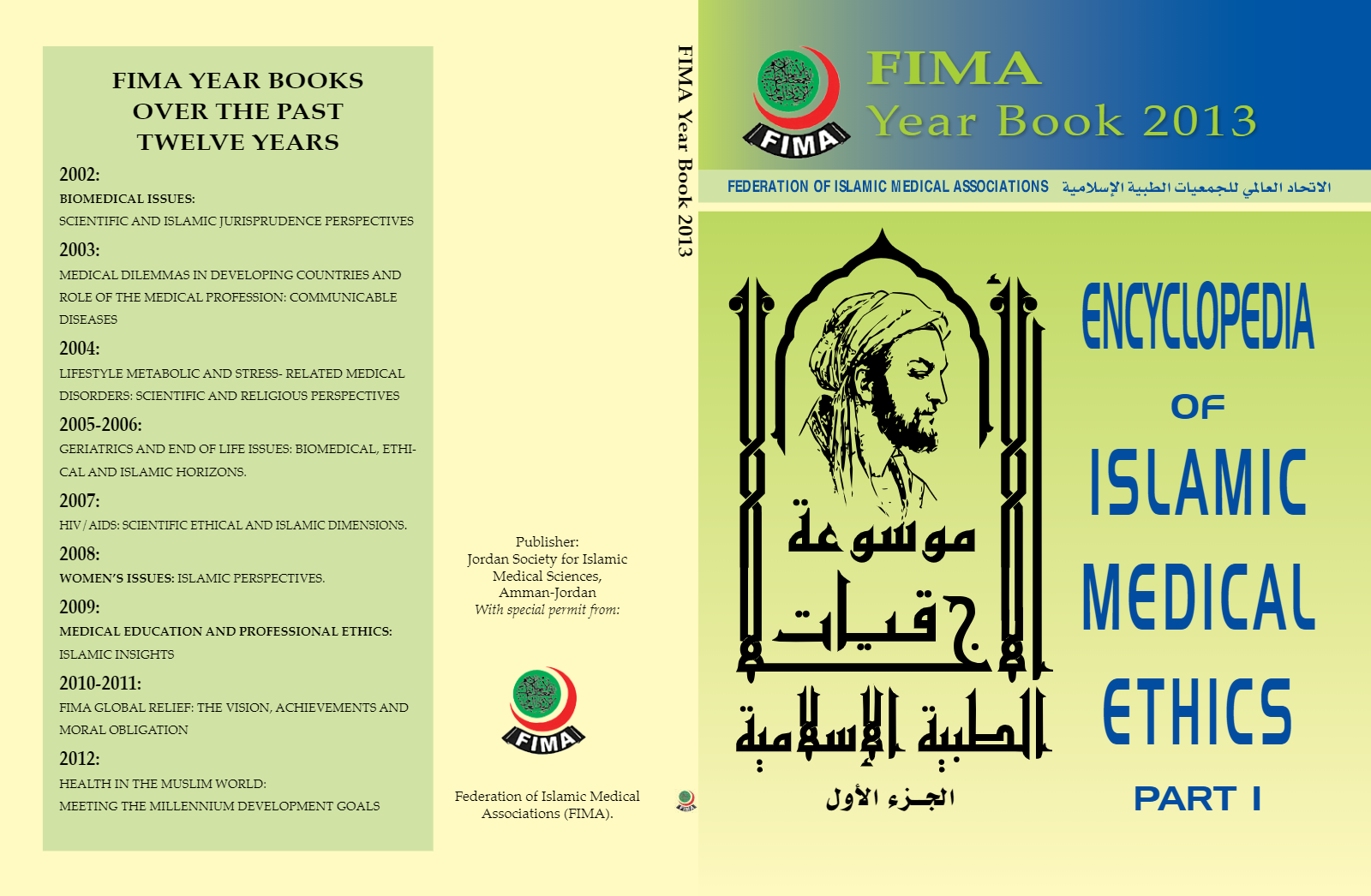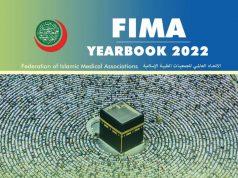Bismillah al-Rahman al-Rahim
Assalamu Alaykum
Praise be to Allah the Most Merciful, the Most Beneficent. May Allah shower His
blessings and peace on His Prophet and Messenger Muhammad(صلى الله عليه وسلم.(
I begin by thanking the FIMA Executive Committee for honoring me with the
responsibility to be the Editor-in Chief again for this yearbook. I thank Allah (جل جلاله (
for giving me this opportunity and enabling me to accomplish this task. I pray to
Allah (جل جلاله (to accept my effort in His way and to reward all who participated in this
effort.
Ethical standards of physicians’ conduct, behavior and professionalism have deep
roots in Islamic civilization since the early days of Islam. These standards were
established on guidance from the Glorious Qur’an and the prophetic Sunnah. Rulings
related to physician’s morality, proper conduct, competence, as well as patient care
are outlined in these two principal sources of Shari`ah (Islamic Law).
Subsequently, with more advances and developments of medical practice, other
sources of Shari`ah were required, namely: consensus of jurists’ (ijma’ ), and qiyas
(analogy) with other similar situations. Both these sources fall under the broad
theme of (ijtihad), which represents utilization of reasoning and mental processes
to reach to Shari`ah acceptable rulings when there is no guidance available from
the Glorious Qur’an or Sunnah.











